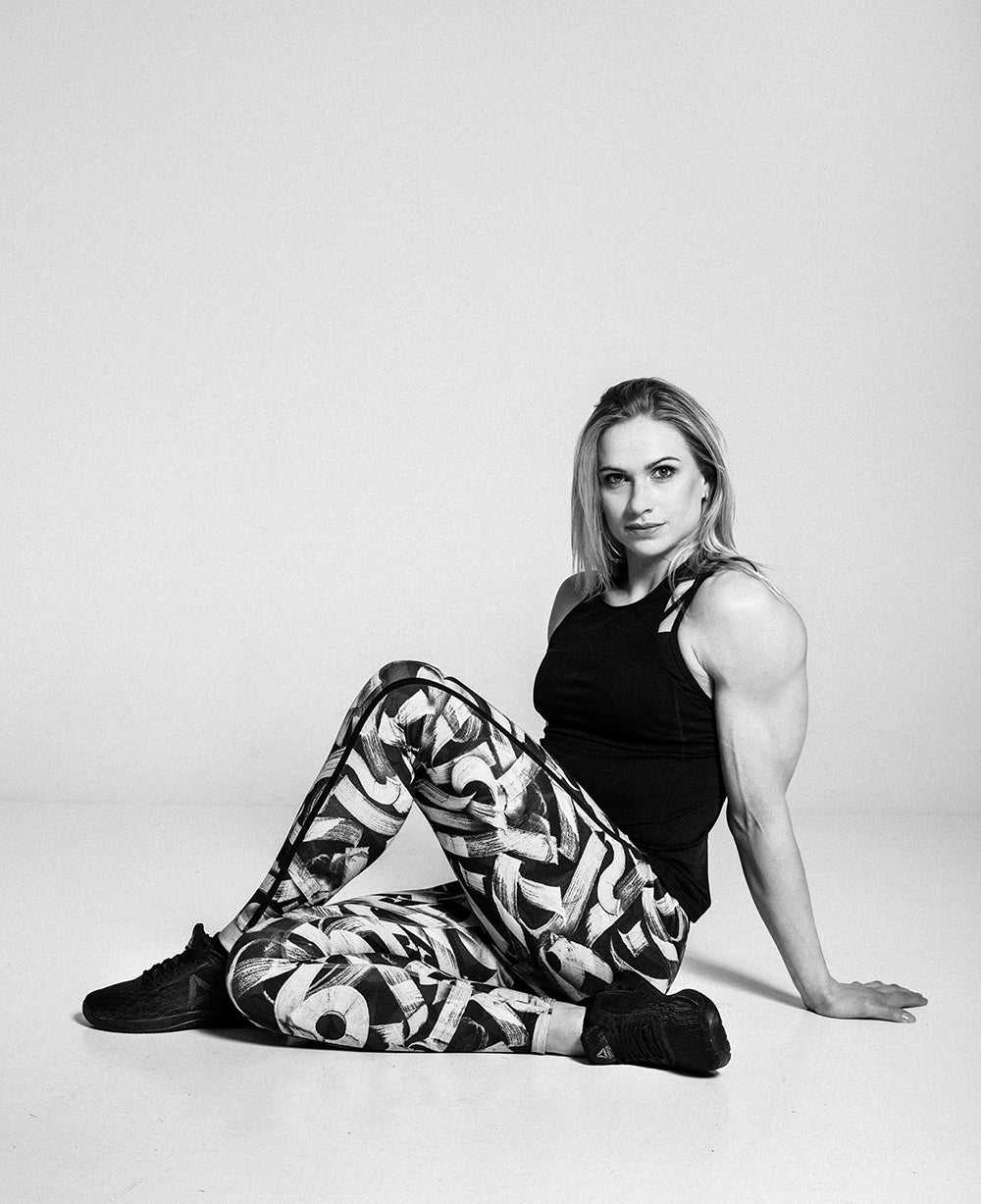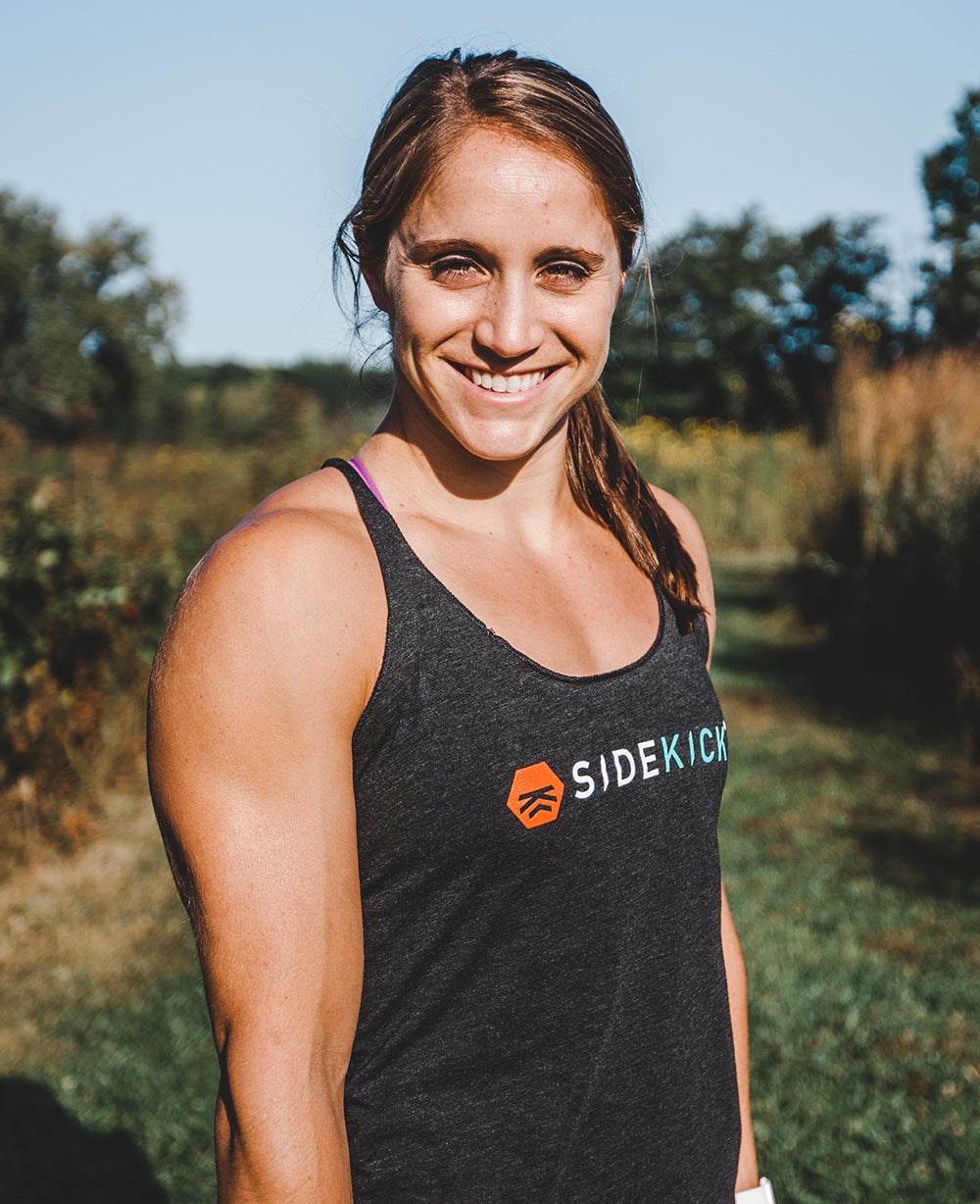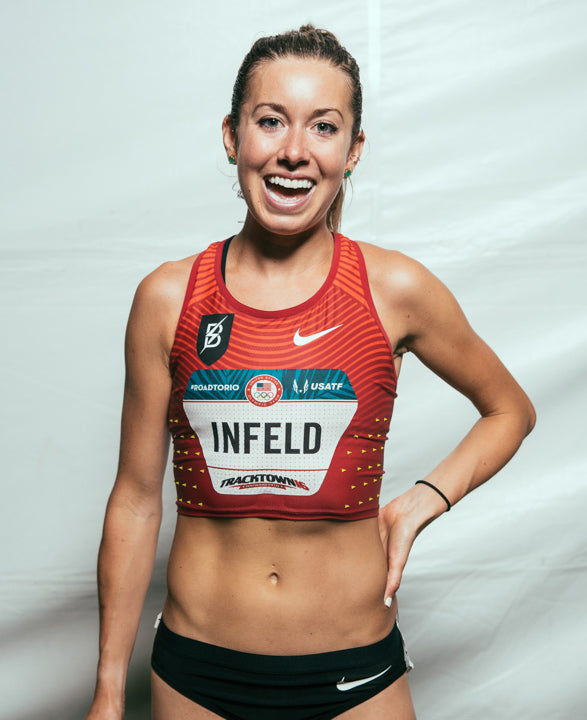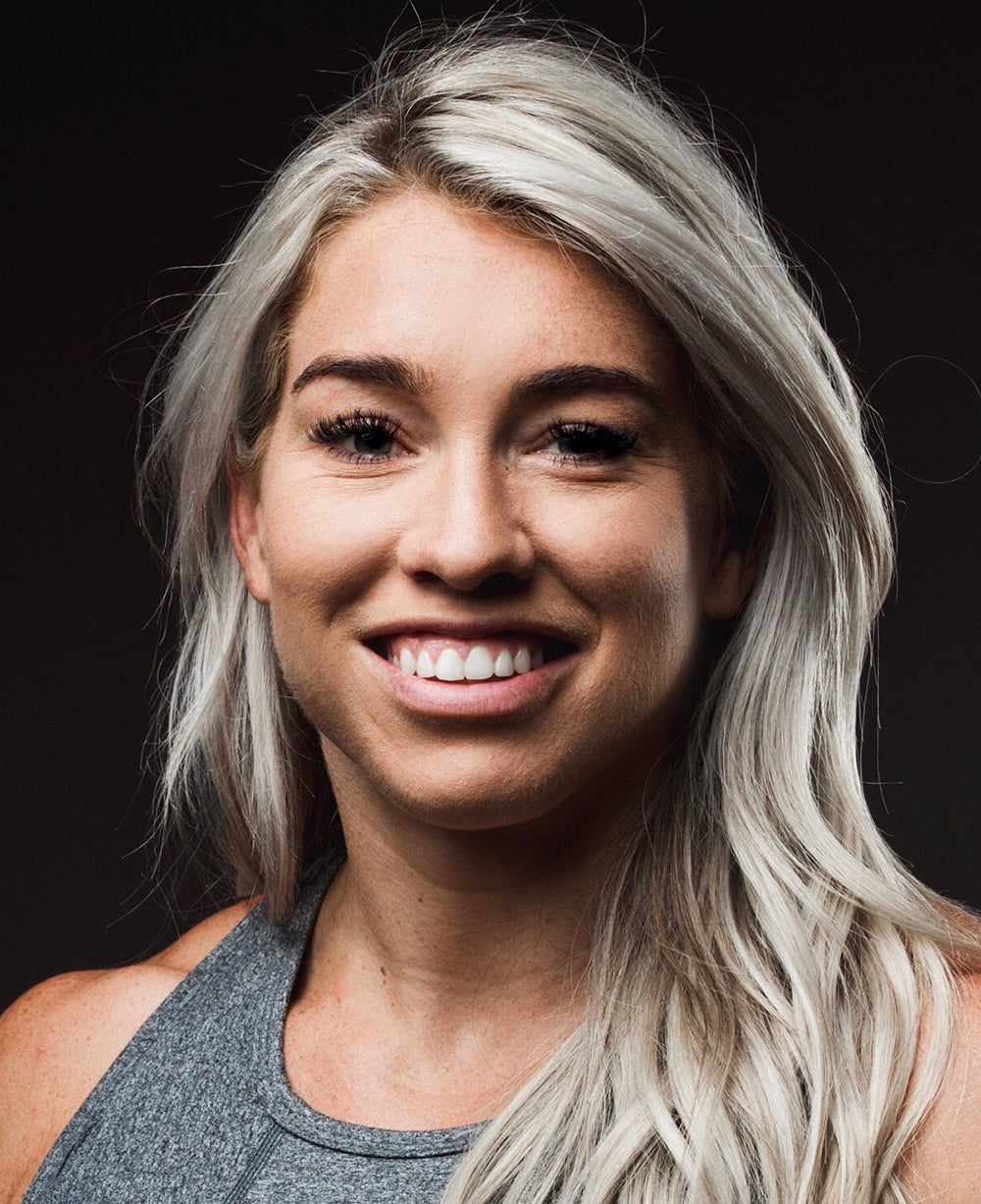

Tim Tollefson
TRAIL/ULTRARUNNING
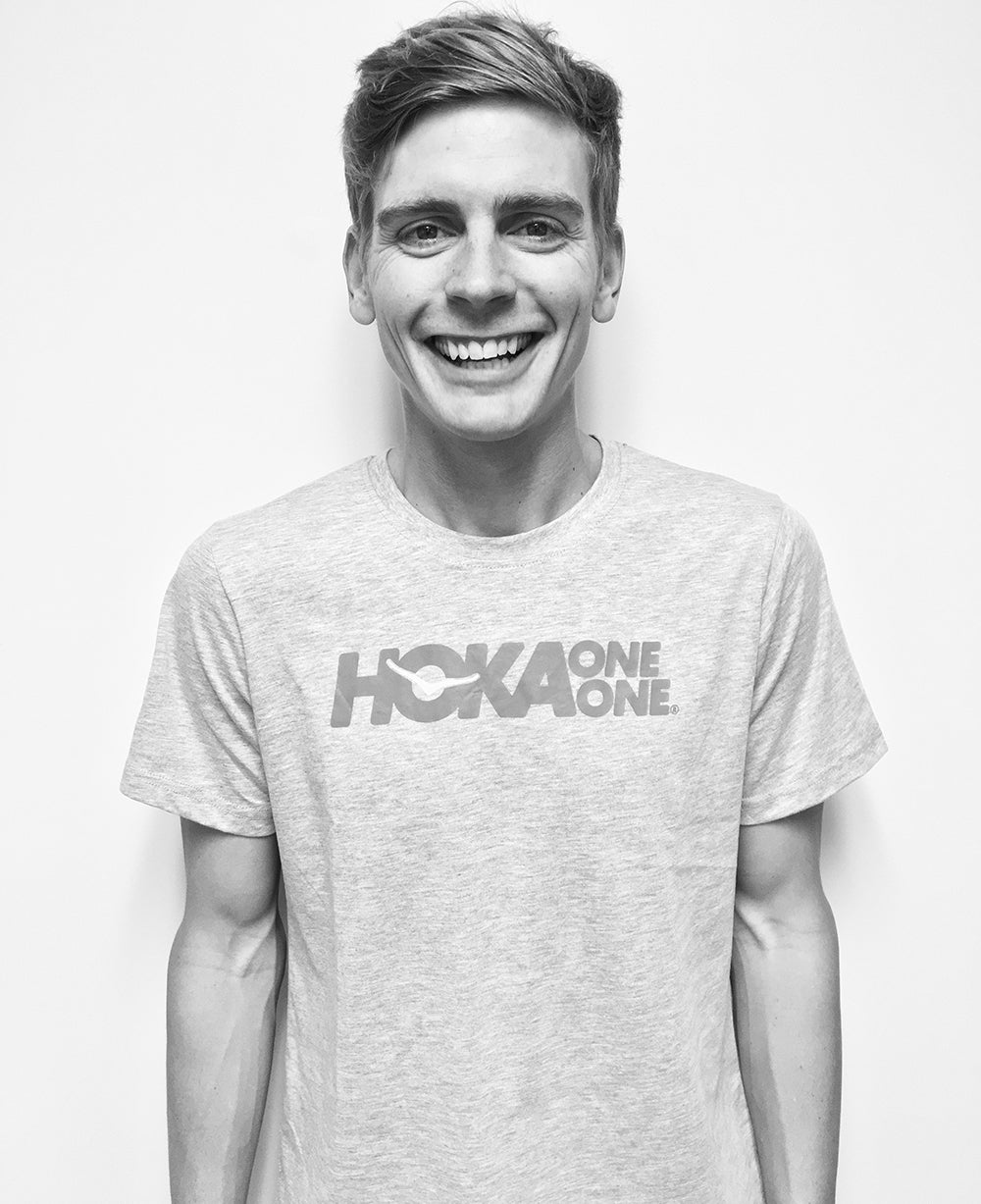
STATS
Three-time USATF National Trail Champion
Two-time 3rd Place UTMB
Lavaredo Ultra Trail Champion
Ultra Trail Australia Champion
Two-time US Olympic Trials Marathon Qualifier
Tell us a bit about yourself and what you are currently training for
My name is Tim Tollefson, I am a simple man. I love mountains, doughnuts, and to run in mountains with doughnuts. I am a professional trail and ultrarunner for HOKA ONE, and I live in Mammoth Lakes, CA with my wife Lindsay, where I work full-time as a physical therapist in an outpatient orthopedic setting that specializes in sport specific rehabilitation. Currently, given the global pandemic, I am training for a few personal projects in the Eastern Sierra.
How did you get introduced to your sport (what is your athletic background)?
I originally got into the sport of running in 6th grade through school as we were required to run 1 mile for PE. After that I got into cross country and track throughout high school, then I ran collegiately for 5 years and focused on athletics, primarily the steeple chase, until graduation where I spent four or five years competing on the road doing road marathons, ½ marathons, 10K’s, 5K’s, a few track events. But in 2014, some friends were getting into the trail and ultra-world and I was interested and a bit envious of the opportunities they were getting to travel to cool places so I dove into my first 50K and it just kind of took off from there. And now over the last 6 years, I’ve been competing only at train and ultra-distances
What do you enjoy the most about your sport?
I love being able to get out and spend time in the Alpine and have that sense of being removed from reality while exploring a beautiful location, but then being able to dip back into the excitement of my crew, family, fans, or crowds in an aid station or a town you might be passing through, then to dart back up to an alpine environment and be alone with your thoughts. I think its just a neat way to explore these rugged areas we call home, and also to be able to do it on your own power is kind of a really adventurous and rewarding thing to be able to do. We might travel somewhere in a day that might take some people 14 days to backpack and it’s kind of fun to get there that much quicker.
Who are the people you rely on to who help you perform?
Right now my core group would be Lindsay, I’m now working with a psychologist which I think is hugely important to help maintain a proper mindset around things. I’m just now starting to work with a nutritionist which I hope is going to give me a nice advantage, it’s something I haven’t done in the past. My coach, he helps lay out my overall training cycle and then close friends and family, I’d say those are my key players.
What does your typical training day look like?
We wake up probably 5:30 or 6:00, start getting the day going with coffee and some breakfast. I like to get my first run of they day in between 7:30 and 8:30 and that’s where I’ll normally do my longer more quality sessions. I do that because I like the morning temps, they’re cooler and I have more motivation and energy, and then have to go to work for 6 – 9 hours afterwards so I find I am more effective to get that session in first. Depending on the season, I might have an afternoon/evening run that I will plug in after work, and if I am on top of things, I’ll do my strength training or more specific drills in the evening.
What is your biggest challenge right now?
Keeping motivation through troubling times, Whether its Covid related, personal struggles, or family things, sometimes it can feel like the drive to continue striving after those big lofty goals can start to waiver when there are so many other heavy things in life. I think finding that balance between keeping your foot on the pedal to achieve what you're hoping to but also recognizing that there’s a lot of other things outside of sport.
What does it take to succeed at the highest levels in your sport?
Insanity…I think with Ultrarunning specifically, you have to have a blend of grittiness or determination, you need to be willing to put up with things not going well and continue to do them despite them not panning out how you envisioned it. Most Ultra Races are never going to unfold the way you dreamt of them, it's all about problem solving, implementing your secondary and tertiary game plans, and strategies that you hoped you didn’t have to utilize but now you do. Because inevitably the one predictable thing is that they are predictably unpredictable, and not losing your cool during that is important so you can still make rational decisions that will allow you to move forward. Often people get overwhelmed but how you respond to that allows you the ability to keep moving forward. You need to be able to attack things a bit free flowing and keep showing up. It’s a cliché thing to say but in ultra-running its all about keep putting one foot in front of the other, often times in a race it may feel like you are crawling towards the finish line but someone else is crawling slower and if you keep crawling you might actually pass them. It’s like it’s a war of attrition out there and being too stubborn to give up.
Tell me about a recent injury you've had and how you recovered?
The most recent significant injury was in 2018, I was with the lead pack at UTMB about 50K in descending at dark with headlamps on some real wet trail crossing some creeks, I stepped on a rock that shifted, I fell and landed on a vertically anchored piece of shale that sliced through my quad. That one was a bummer, I wrapped it up myself and kept bleeding until I could get the medics to wrap it up tighter to control the bleeding and I limped another 100K before I ultimately dropped out of the race. That was a tough thing to do but I’ve started to realize that there is a difference between quitting and giving up in races. You can quit a race if there is a legitimate reason you should stop, and you might do harm to yourself or others by continuing. That injury was an example, I was severely favoring my injury and fearful of the long-term damage if I continued stubbornly to finish. Giving up is a mental failure of not wanting to do it anymore and wanting to stop. I was thankfully only needing stiches after dropping out and getting a helicopter ride back to the start, I had to take time off to heal and thankfully there was no long-term damage to the muscle.
What is the achievement you are most proud of?
For ultrarunning my 2017 UTMB where I finished third place but I like to say that I was first place in the human division, the two guys that beat me, Francois D’Haene and Killian Journet, they’re basically gods among men in the trail running world, they both have run every race, Killian has summited Everest twice in one week without supplemental oxygen, so finishing right behind them and in front of some future and current winners of the race.
How important is mental preparation to competition & training and how do you prepare?
As I am realizing in my ripe old age of 35, mental preparation is hugely important. It’s something that I wish I’d had more guidance on earlier in my career in athletics, marathoning, and ultrarunning, but I don’t think its too late to start so that’s where I am starting to work with professionals on learning how to tap into the right mindset and motivational factors for performance. I think if we don’t have a good why, a reason that we are going to do something in a race before we go in, if things hit the fan or that crux where the race gets really hard, if you are searching for a reason to continue and it’s not almost automatic I think that’s where most of us are going to give up. I’m trying to figure out what my why is and some of my best performances I think I did tap into that inadvertently, but I want to do it more consistently.
How do you stay motivated?
One thing that does motivate me is curiosity, the unknown. I like to challenge myself physically and set lofty goals to see what is possible, so like “do you think you can hit that” yeah but maybe it’s kind of in the stratosphere but I’m going to go for it. Same thing goes for events, the curiosity of a new terrain, a new area or region, a trail I’ve never seen before. I want to keep going to see what that next alpine lake is going to look like.
What does it feel like to win and what has been your favorite victory so far?
Often a victory feels incredible, and for me it’s because I don’t really win that often. I seem to get into races where there is incredibly deep fields and I might have a good performance but like UTMB 2017 where I finished third it felt like a victory, we all broke the previous course record but two people broke it ahead of myself. So, when I do win, I really cherish it because you don’t know when it will happen again.
Can you walk us through your recovery programming (PT, massage therapy, foam rolling etc...)?
I personally find benefit with ice bathing, its something I enjoy intermittently, I know there is mixed research on the efficacy of using it too often but if I have a little niggle that pops up that cryotherapy seems to be quite beneficial to nip it in the bud. I do a fair amount of foam rolling because its something I can do on my own, the pressure of rolling is beneficial. I’ve also done a fair amount of IASTM on myself on lower leg injuries, and those are the big ones really. I am looking forward to experimenting more with using the Sidekick tools.
What is the best recovery tip you've ever received?
Don’t be afraid of taking a day off, as endurance athletes, and I’m guilty of this. Sometimes a little effort on the front end saves you a whole lot of heartache on the backend. We register there are warning signs there is something not right, whether we listen to those help dictate whether we stay injury free. It's hard because we think “If I miss this run” we’re not going to get better, but if we stubbornly limp through a run, often times that can lead to a couple weeks of not being able to run the way you want to. I think learning to listen to your body truthfully or have someone objectively help guide you I think is the best thing. People don’t necessarily over train they under recover. There are so many recovery things that we can do that we don’t do because we’re too focused don training, training, training.
What advice would you give other athletes looking to follow in your footsteps?
Find good mentors, I think it's important to surround yourself with knowledgeable people that have experienced things that you are going to probably face. It's something I’ve tried to do in every domain where I read and study and try and listen to people who have been there because I think there are lots of nuggets of knowledge that you can pull from people that have experience, and hopefully take those, learn from the mistakes and successes and maybe be able to push the boundary to a new level, I think between that and balance. One thing I really see in young athletes is that they think “living the dream” means a complete lifestyle all about chasing your sport. I think balance is healthy, balance in your physical state with training and recovery, and balance knowing that we are so much more than athletes. If we wrap our identity only up into athletics that’s a dangerous environment to be in because inevitably all of our bodies are going to fail at some point, hopefully long down the road but if they fail earlier (it happens) how are you going to mentally deal with that anxiety and stress and not go down a path of self-harm or depression which we see in a lot of athletes. So, I think being able to sustain yourself in other facets outside of sport is important, find other meaning in life other than just your sport.
How can somebody find out more about you?
Google, I would say follow me on Instagram and on my Strava those are the places where I am most active, hopefully in the future I’ll be doing more in-person engagements as well.
If you had to pick a favorite food?
Pizza
Last Question: What’s your favorite Podcast?
I have a mixture but I love “How I Built This” by NPR, there are a lot of parallels to sport even though they are entrepreneurs in different domains I think it’s something that I find fascinating and as a future entrepreneur with some of the things I have going on I just take inspiration from people in all different fields and what they struggle with, found success in and how there are parallels between those domains.
"I use it at least every other night."
Tim's FAVOURITE SIDEKICK TOOL

Eclipse Muscle Scraper
WHAT'S INSIDE THE SET
- Eclipse Muscle ScraperHandheld stainless steel muscle scraper.
- Oasis Roller GelMade from 100% natural ingredients, apply this lubricant prior to scraping.
- Protector Case Your Eclipse is an investment, keep it protected at all times.
- Cleaning Towel This towel is great for wiping off excess oil on your skin after use.

STATS
Three-time USATF National Trail Champion
Two-time 3rd Place UTMB
Lavaredo Ultra Trail Champion
Ultra Trail Australia Champion
Two-time US Olympic Trials Marathon Qualifier
Tim Tollefson
TRAIL/ULTRARUNNING
Tell us a bit about yourself and what you are currently training for
My name is Tim Tollefson, I am a simple man. I love mountains, doughnuts, and to run in mountains with doughnuts. I am a professional trail and ultrarunner for HOKA ONE, and I live in Mammoth Lakes, CA with my wife Lindsay, where I work full-time as a physical therapist in an outpatient orthopedic setting that specializes in sport specific rehabilitation. Currently, given the global pandemic, I am training for a few personal projects in the Eastern Sierra.
How did you get introduced to your sport (what is your athletic background)?
I originally got into the sport of running in 6th grade through school as we were required to run 1 mile for PE. After that I got into cross country and track throughout high school, then I ran collegiately for 5 years and focused on athletics, primarily the steeple chase, until graduation where I spent four or five years competing on the road doing road marathons, ½ marathons, 10K’s, 5K’s, a few track events. But in 2014, some friends were getting into the trail and ultra-world and I was interested and a bit envious of the opportunities they were getting to travel to cool places so I dove into my first 50K and it just kind of took off from there. And now over the last 6 years, I’ve been competing only at train and ultra-distances
What do you enjoy the most about your sport?
I love being able to get out and spend time in the Alpine and have that sense of being removed from reality while exploring a beautiful location, but then being able to dip back into the excitement of my crew, family, fans, or crowds in an aid station or a town you might be passing through, then to dart back up to an alpine environment and be alone with your thoughts. I think its just a neat way to explore these rugged areas we call home, and also to be able to do it on your own power is kind of a really adventurous and rewarding thing to be able to do. We might travel somewhere in a day that might take some people 14 days to backpack and it’s kind of fun to get there that much quicker.
Who are the people you rely on to who help you perform?
Right now my core group would be Lindsay, I’m now working with a psychologist which I think is hugely important to help maintain a proper mindset around things. I’m just now starting to work with a nutritionist which I hope is going to give me a nice advantage, it’s something I haven’t done in the past. My coach, he helps lay out my overall training cycle and then close friends and family, I’d say those are my key players.
What does your typical training day look like?
We wake up probably 5:30 or 6:00, start getting the day going with coffee and some breakfast. I like to get my first run of they day in between 7:30 and 8:30 and that’s where I’ll normally do my longer more quality sessions. I do that because I like the morning temps, they’re cooler and I have more motivation and energy, and then have to go to work for 6 – 9 hours afterwards so I find I am more effective to get that session in first. Depending on the season, I might have an afternoon/evening run that I will plug in after work, and if I am on top of things, I’ll do my strength training or more specific drills in the evening.
What is your biggest challenge right now?
Keeping motivation through troubling times, Whether its Covid related, personal struggles, or family things, sometimes it can feel like the drive to continue striving after those big lofty goals can start to waiver when there are so many other heavy things in life. I think finding that balance between keeping your foot on the pedal to achieve what you're hoping to but also recognizing that there’s a lot of other things outside of sport.
What does it take to succeed at the highest levels in your sport?
Insanity…I think with Ultrarunning specifically, you have to have a blend of grittiness or determination, you need to be willing to put up with things not going well and continue to do them despite them not panning out how you envisioned it. Most Ultra Races are never going to unfold the way you dreamt of them, it's all about problem solving, implementing your secondary and tertiary game plans, and strategies that you hoped you didn’t have to utilize but now you do. Because inevitably the one predictable thing is that they are predictably unpredictable, and not losing your cool during that is important so you can still make rational decisions that will allow you to move forward. Often people get overwhelmed but how you respond to that allows you the ability to keep moving forward. You need to be able to attack things a bit free flowing and keep showing up. It’s a cliché thing to say but in ultra-running its all about keep putting one foot in front of the other, often times in a race it may feel like you are crawling towards the finish line but someone else is crawling slower and if you keep crawling you might actually pass them. It’s like it’s a war of attrition out there and being too stubborn to give up.
Tell me about a recent injury you've had and how you recovered?
The most recent significant injury was in 2018, I was with the lead pack at UTMB about 50K in descending at dark with headlamps on some real wet trail crossing some creeks, I stepped on a rock that shifted, I fell and landed on a vertically anchored piece of shale that sliced through my quad. That one was a bummer, I wrapped it up myself and kept bleeding until I could get the medics to wrap it up tighter to control the bleeding and I limped another 100K before I ultimately dropped out of the race. That was a tough thing to do but I’ve started to realize that there is a difference between quitting and giving up in races. You can quit a race if there is a legitimate reason you should stop, and you might do harm to yourself or others by continuing. That injury was an example, I was severely favoring my injury and fearful of the long-term damage if I continued stubbornly to finish. Giving up is a mental failure of not wanting to do it anymore and wanting to stop. I was thankfully only needing stiches after dropping out and getting a helicopter ride back to the start, I had to take time off to heal and thankfully there was no long-term damage to the muscle.
What is the achievement you are most proud of?
For ultrarunning my 2017 UTMB where I finished third place but I like to say that I was first place in the human division, the two guys that beat me, Francois D’Haene and Killian Journet, they’re basically gods among men in the trail running world, they both have run every race, Killian has summited Everest twice in one week without supplemental oxygen, so finishing right behind them and in front of some future and current winners of the race.
How important is mental preparation to competition & training and how do you prepare?
As I am realizing in my ripe old age of 35, mental preparation is hugely important. It’s something that I wish I’d had more guidance on earlier in my career in athletics, marathoning, and ultrarunning, but I don’t think its too late to start so that’s where I am starting to work with professionals on learning how to tap into the right mindset and motivational factors for performance. I think if we don’t have a good why, a reason that we are going to do something in a race before we go in, if things hit the fan or that crux where the race gets really hard, if you are searching for a reason to continue and it’s not almost automatic I think that’s where most of us are going to give up. I’m trying to figure out what my why is and some of my best performances I think I did tap into that inadvertently, but I want to do it more consistently.
How do you stay motivated?
One thing that does motivate me is curiosity, the unknown. I like to challenge myself physically and set lofty goals to see what is possible, so like “do you think you can hit that” yeah but maybe it’s kind of in the stratosphere but I’m going to go for it. Same thing goes for events, the curiosity of a new terrain, a new area or region, a trail I’ve never seen before. I want to keep going to see what that next alpine lake is going to look like.
What does it feel like to win and what has been your favorite victory so far?
Often a victory feels incredible, and for me it’s because I don’t really win that often. I seem to get into races where there is incredibly deep fields and I might have a good performance but like UTMB 2017 where I finished third it felt like a victory, we all broke the previous course record but two people broke it ahead of myself. So, when I do win, I really cherish it because you don’t know when it will happen again.
Can you walk us through your recovery programming (PT, massage therapy, foam rolling etc...)?
I personally find benefit with ice bathing, its something I enjoy intermittently, I know there is mixed research on the efficacy of using it too often but if I have a little niggle that pops up that cryotherapy seems to be quite beneficial to nip it in the bud. I do a fair amount of foam rolling because its something I can do on my own, the pressure of rolling is beneficial. I’ve also done a fair amount of IASTM on myself on lower leg injuries, and those are the big ones really. I am looking forward to experimenting more with using the Sidekick tools.
What is the best recovery tip you've ever received?
Don’t be afraid of taking a day off, as endurance athletes, and I’m guilty of this. Sometimes a little effort on the front end saves you a whole lot of heartache on the backend. We register there are warning signs there is something not right, whether we listen to those help dictate whether we stay injury free. It's hard because we think “If I miss this run” we’re not going to get better, but if we stubbornly limp through a run, often times that can lead to a couple weeks of not being able to run the way you want to. I think learning to listen to your body truthfully or have someone objectively help guide you I think is the best thing. People don’t necessarily over train they under recover. There are so many recovery things that we can do that we don’t do because we’re too focused don training, training, training.
What advice would you give other athletes looking to follow in your footsteps?
Find good mentors, I think it's important to surround yourself with knowledgeable people that have experienced things that you are going to probably face. It's something I’ve tried to do in every domain where I read and study and try and listen to people who have been there because I think there are lots of nuggets of knowledge that you can pull from people that have experience, and hopefully take those, learn from the mistakes and successes and maybe be able to push the boundary to a new level, I think between that and balance. One thing I really see in young athletes is that they think “living the dream” means a complete lifestyle all about chasing your sport. I think balance is healthy, balance in your physical state with training and recovery, and balance knowing that we are so much more than athletes. If we wrap our identity only up into athletics that’s a dangerous environment to be in because inevitably all of our bodies are going to fail at some point, hopefully long down the road but if they fail earlier (it happens) how are you going to mentally deal with that anxiety and stress and not go down a path of self-harm or depression which we see in a lot of athletes. So, I think being able to sustain yourself in other facets outside of sport is important, find other meaning in life other than just your sport.
How can somebody find out more about you?
Google, I would say follow me on Instagram and on my Strava those are the places where I am most active, hopefully in the future I’ll be doing more in-person engagements as well.
If you had to pick a favorite food?
Pizza
Last Question: What’s your favorite Podcast?
I have a mixture but I love “How I Built This” by NPR, there are a lot of parallels to sport even though they are entrepreneurs in different domains I think it’s something that I find fascinating and as a future entrepreneur with some of the things I have going on I just take inspiration from people in all different fields and what they struggle with, found success in and how there are parallels between those domains.
"I use it at least every other night."
Tim's FAVORITE SIDEKICK TOOL

Eclipse Muscle Scraper
WHAT'S INSIDE THE SET
- Eclipse Muscle ScraperHandheld stainless steel muscle scraper.
- Oasis Roller GelMade from 100% natural ingredients, apply this lubricant prior to scraping.
- Protector Case Your Eclipse is an investment, keep it protected at all times.
- Cleaning Towel This towel is great for wiping off excess oil on your skin after use.








